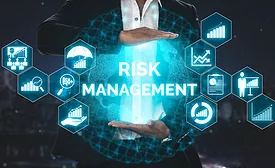Home » compliance
Articles Tagged with ''compliance''
Analyzing the EDPB’s draft recommendations on supplementary measures
In the wake of Schrems II, the EDPB’s much-anticipated recommendations provide extensive guidance on supplementary measures parties can use to legally transfer data out of the EEA in the absence of an adequacy decision.
November 20, 2020
GRC leaders lack confidence in security data they provide to regulators
September 28, 2020
Sign-up to receive top management & result-driven techniques in the industry.
Join over 20,000+ industry leaders who receive our premium content.
SIGN UP TODAY!Copyright ©2026. All Rights Reserved BNP Media.
Design, CMS, Hosting & Web Development :: ePublishing











